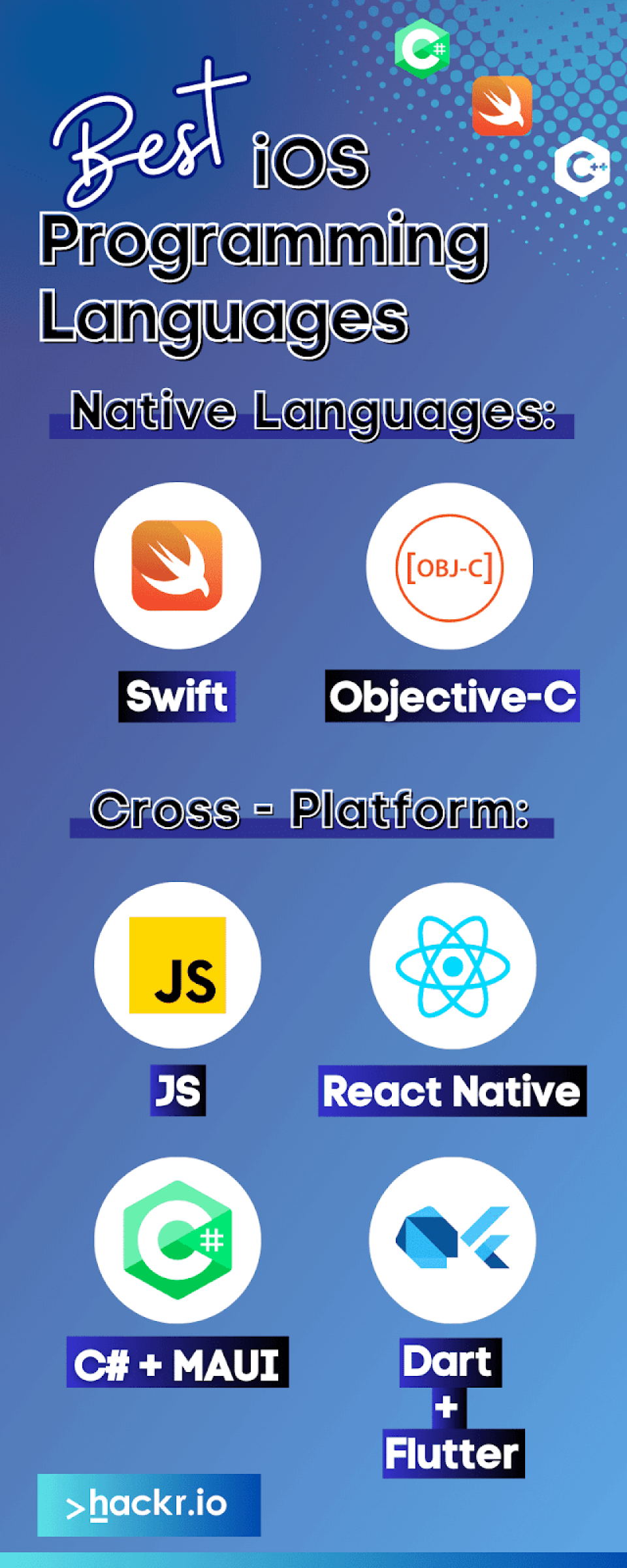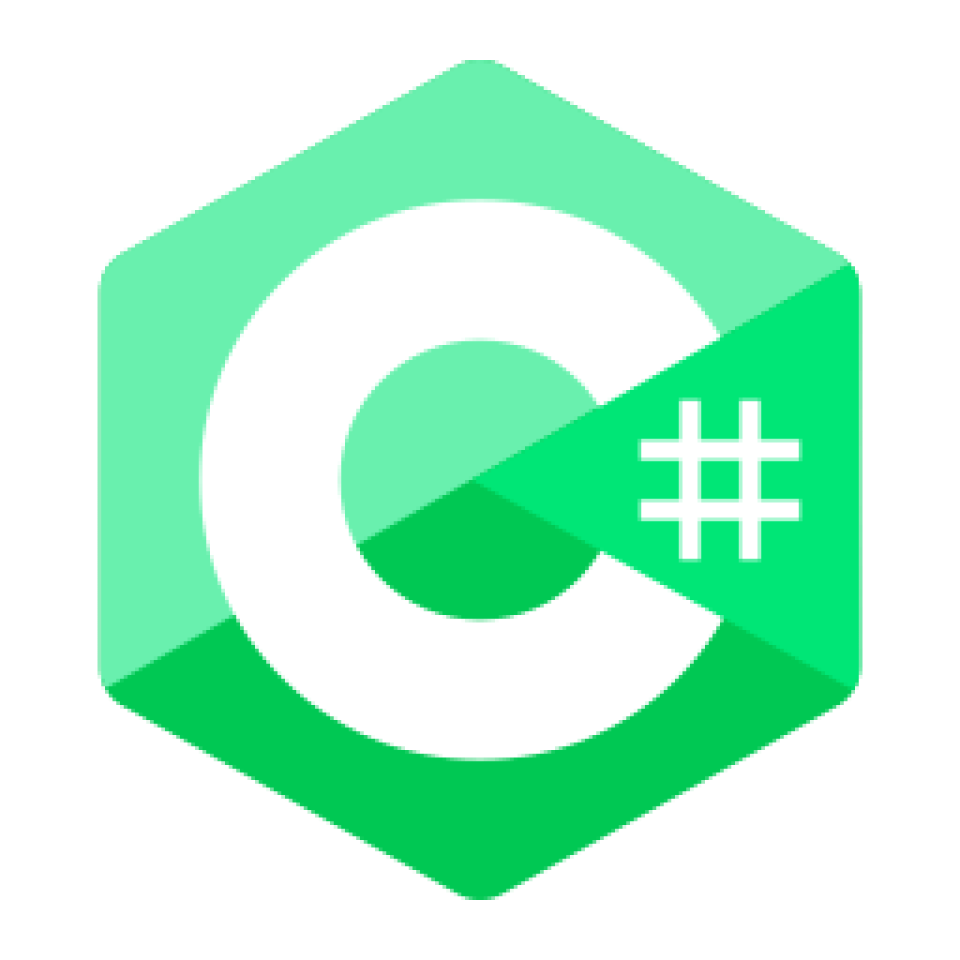Apple is one of the biggest mobile-device manufacturers in the world. The iPhone accounts for 48.7% of smartphones in the United States and the Apple App store generates $640+ billion in billings and sales globally.
Those numbers aren't likely to decline. After all, Apple users are known for their fierce brand loyalty.
In other words, iOS apps are big business. If you're a developer, it pays to learn the most popular iOS programming languages. In this article, we'll look at the general process of building apps for iPhones before diving into the best languages for iOS development in 2024.
What is iOS App Development?
The Apple iOS runs the majority of the company's mobile devices. Originally, it powered both iPhones and iPads; in 2019, Apple introduced the iPadOS. The core of the two operating systems is similar, but the iPad version supports the tablet's unique capabilities. The standard iOS runs all versions of the iPhone.
When you're building an app for iOS, the company recommends that you use its integrated development environment (IDE), Xcode. There, you can complete each step of the development process:
- Write the code
- Create the app infrastructure
- Design a user interface
- Test and debug the app
- Optimize app performance
- Select a business model
Xcode's main iOS development languages are Swift and Objective-C, but it is possible to develop iOS apps in Xcode with JavaScript + React Native, Dart + Flutter, and C# with MAUI.
Note that Xcode is only available for Mac computers, but you can access it from other operating systems with virtualization software. Another option is to use a cloud service such as MacStadium.
If you want to develop an iOS app outside of Xcode, it is possible, but significantly more difficult, so we’d always recommend using Xcode.
What is the iOS Programming Language?
There is more than one iOS programming language, but the best for native apps is Swift. We discuss the details about why below. The community of programmers at Hackr recognizes a few other worthwhile options as well. Let's discuss them!
The 5 Best iOS Programming Languages in 2024
As you determine the best programming languages to learn, consider your end goals. For example, are you an Apple-only developer, or do you plan to code for other platforms?
Generally speaking, you'll get the biggest ROI from the official programming languages for iOS, namely Swift and Objective-C. But if your apps need to work on Android or Windows as well, the decision can be a bit more complex, and you have two primary options.
- Build separate native apps for each platform: This allows you to use the features of the platform to the fullest, but it's also more expensive and time-consuming.
- Use a single code base and a cross-platform IDE: This strategy allows you to build an app in a framework like React Native or .NET MAUI, which you can then deploy to multiple platforms. The process is faster and more cost-effective than building separate apps, but it may limit your access to native APIs and it can affect UI functionality.
Both approaches are viable and the right choice depends on your priorities. Let's now take a look at the top iOS programming languages and frameworks for each strategy.

1. Swift

If you're building native iOS apps, Swift is the best iOS programming language to use. It's Apple's preferred language — the company developed it just for its proprietary platforms. Modern and lightweight, Swift is designed to replace older languages such as C, C++, and Objective-C.
Since Swift is a compiled programming language, it's faster than interpreted languages. This includes popular options such as JavaScript and Python. According to Apple, Swift is 2.6 times faster than Objective-C and 8.4 times faster than Python.
As with most iPhone programming languages, practice is the best way to learn Swift. Apple makes it easy with free Swift courses and the Swift Playgrounds app. Or, you can take The Complete iOS App Development Bootcamp at Udemy.
When To Use Swift
Use Swift any time you're building a native iOS app. It's particularly effective if you want to take full advantage of the iPhone features.
You might also use Swift if you're expanding an older iOS app. The language is interoperable with Apple's legacy Objective-C files. That means you can use both languages in the same project.
Some iOS apps built with Swift include Lyft, VSCO, and LinkedIn.
Pros of Swift
- Open-source
- Maximizes features of iOS and iPhone hardware
- Fast and lightweight
- Simple, easy-to-learn syntax
- Built-in safeguards to prevent errors
- Minimal memory usage
- Easy scalability
- Unified codebase
- Compatible with Mac, iPad, Apple Watch, and Apple TV
Cons of Swift
- Relatively new programming language
- Smaller support community compared to older languages
- Does not work on versions of iOS older than 7.0
- May cause issues with third-party APIs
- Does not support Android development
2. Objective-C

Objective-C is Apple's original programming language. It's also the foundation of the MacOS and iOS. This object-oriented language is a superset of C — it expands it and adds new features.
Swift is rapidly overtaking Objective-C as the primary iOS developer language. In fact, nearly 5% of developers used it in 2022, compared to approximately 2% who used Objective-C.
Even so, it may still be worth learning. Much of Apple's legacy code is still written in Objective-C, and it will take time to migrate fully. To learn more about it, consider the Introduction to iOS Application Development course offered by Meta.
When To Use Objective-C
You can code new iOS apps in Objective-C, particularly if you need them to run on old versions of iOS. The language is most useful for updating and maintaining older iOS apps.
Many of Apple's pre-installed apps, as well as iOS itself, use Objective-C.
Pros of Objective-C
- Backwards compatible with C and C++
- Thorough documentation is available
- Ample developer community support
- Broad range of third-party frameworks and libraries
- Compatible with older Apple operating systems
Cons of Objective-C
- Losing popularity over time
- Complex syntax is challenging to learn
- Requires you to maintain two files of code for header and implementation files
- Inherited security vulnerabilities from C
3. C# + MAUI

C# is a versatile, object-oriented programming language created by Microsoft. This young language is usually used to develop cross-platform apps, but it's also used in games, software, websites, web APIs, and more. C# was the 7th most popular programming language among professional developers in 2022.
Microsoft's .NET Multi-platform App UI (MAUI) framework enables you to build iOS apps with C#. Typically, developers pair it with the Microsoft Visual Studio IDE. This combination enables you to build the app on a Windows machine, however you will need to connect to a Mac to publish it to the App Store.
When To Use C# + MAUI
C# can save time and money when you want to launch an app on multiple platforms. With .NET MAUI, you can build the C# codebase once — then, you can run the app on iOS, Android, macOS, and Windows.
The Olo app is one example. It uses a core of C# paired with platform-specific code to enhance the user experience.
Pros of C# + MAUI
- Open-source
- Can build a wide range of technology projects
- Accommodates both iOS and Android apps
- Thorough documentation and support
Cons of C# + MAUI
- Challenging to learn
- Compilation process can slow app changes and updates
- Publishing an iOS app made with C# is relatively complicated
4. JavaScript + React Native


JavaScript is a high-level programming language that’s widely used in web development, games, mobile apps, and web servers. It consistently ranks among the top two most commonly used languages on StackOverflow.
On its own, JavaScript isn't an iOS code language. To create an iOS app with JavaScript, you'll need to use a framework like React Native. Once the app is complete, React Native renders to the native iOS user interface.
When To Use JavaScript + React Native
JavaScript is a popular language for developers who want to build iOS/Android apps using one codebase. As a bonus, you don't need to learn either of the two official iOS languages. You can use it in combination with React Native if you want to reuse a significant part of your code. The Walmart and NerdWallet apps both use this method.
Not sure if JavaScript and React Native are right for your app? Check out our comparison of React Native vs. Swift.
Pros of JavaScript
- Broad support and documentation
- Easy access to developers
- Reusable components for faster builds
- Build iOS and Android apps from one codebase
- Recognizes and uses native APIs
Cons of JavaScript
- Slower than native iOS applications
- Time-consuming upgrades within React Native
- Challenging debugging
- May limit access to certain native functions and permissions
5. Dart + Flutter


Dart is a type-safe Google programming language that's primarily used for mobile and web apps. Flexible and fast, it's made for multi-platform development.
When paired with the Flutter framework, Dart is another option for single-codebase, cross-platform app development. To release an iOS app with Flutter, you'll need Xcode and a Mac computer.
When To Use Dart + Flutter
If you're starting from scratch, Dart isn't a top-choice coding language for iOS. However, you might choose to use it if you already have a strong working knowledge of the syntax and the Flutter framework — using existing skills and workflows can save time and money.
Apps that use Flutter and Dart for iOS and Android development include Google Pay and Abbey Road Studios Topline.
Pros of Dart + Flutter
- Easy to learn, particularly if you're familiar with JavaScript
- Faster than JavaScript
- Single-codebase iOS and Android development
- Supports a variety of devices and screen sizes
Cons of Dart + Flutter
- Young programming language
- Limited support resources
- Used by less than 7% of developers
Choosing the Right Programming Language for iOS
Whether you're building Apple-only or cross-platform apps, the right iOS programming language can streamline the development process. For complex native iOS apps, Swift and Objective-C are the best choices.
When versatility is a top priority, you'll get more mileage from a language with broader applications, such as C# or JavaScript. This can also be helpful is you’re already familiar with these languages are you don’t want to learn Swift or Objective-C.
Conclusion
With the Apple iPhone continuing to dominate the smartphone marketplace, the demand for iOS apps is unlikely to slow any time soon, meaning that iOS app development can be a very attractive prospect for developers.
Whether you’re a complete beginner or an experienced dev that’s looking for a new challenge, you can choose from a range of iOS programming languages to build apps for Apple devices in 2024. The choice you make here will likely depend on your current skills and personal goals.
If you have no allegiances to a particular language, you can’t go wrong with Swift, as it’s the native language for iOS development and it’s heavily favored by Apple. That’s not to say though that you can’t opt for the older and still prevalent Objective-C.
Equally, you could also use a third-party approach like C# + MAUI, JavaScript + React Native, or Dart + Flutter. This is particularly helpful if you’d prefer to develop cross-platform apps.
Want to learn to become an iOS developer? Check out:
The Best iOS Development Courses
Frequently Asked Questions
1. Which Programming Language Is Used in iOS?
Apple uses the Swift programming language to build its iOS apps. Before Swift, the company's preferred language was Objective-C. Today, developers use a range of languages for iOS apps, including C# and JavaScript.
2. What Language Is Best for iOS?
If you’re weighing up iOS app languages and you want to build native apps, Swift is probably the best programming language for iOS.
It's the language Apple uses for its own apps, and it works seamlessly with the Apple Xcode IDE. Swift also provides the broadest access to all the iPhone features, so you can build complex, high-performing apps.
3. Is Python Used in iOS?
It's possible to use Python in an iOS app, but the process isn't straightforward or intuitive. To use it, you'd need to develop and compile the app in a cross-platform framework like Kivy, package it for iOS, and complete the process in Xcode.
4. Is iOS Written in C++?
Much of the Apple iOS is written in multiple programming languages — primarily, Objective-C and Swift. However, iOS device drivers often use C++.
